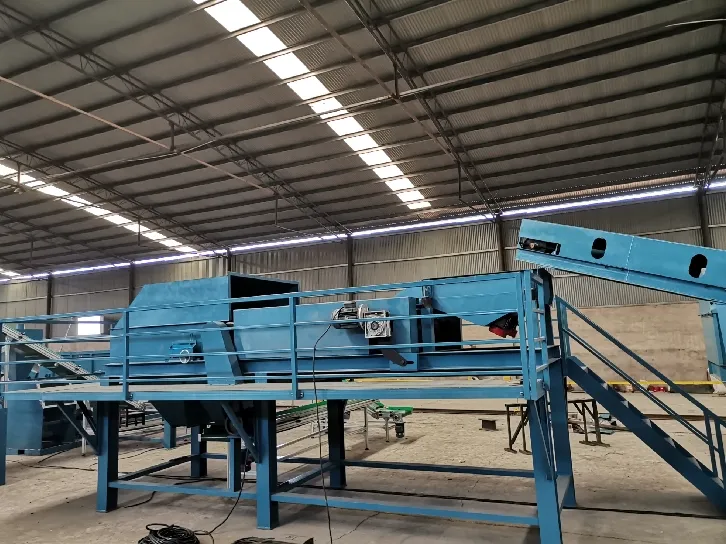

Déc . 30, 2024 20:30 Back to list
Understanding Municipal Solid Waste Sorting Lines A Key to Sustainable Waste Management
Municipal solid waste (MSW) management has become a pressing concern for cities worldwide. As urban populations continue to grow, so does the volume of waste generated. Efficient waste sorting is a crucial step in the waste management process, and municipal solid waste sorting lines play a vital role in facilitating this. These systems help in separating recyclable materials from non-recyclable waste, thus contributing to a more sustainable environment.
A municipal solid waste sorting line is designed to process various types of waste collected from households, businesses, and public spaces. The main goal of such a sorting system is to maximize the recovery of recyclable materials while minimizing the amount of waste sent to landfills. This is achieved through a series of mechanical and manual sorting processes that categorize materials based on their physical properties.
The sorting line typically begins with a tipping area where waste is dumped. From there, it moves onto a conveyor belt, where the large bulk of debris is first screened to eliminate any oversize materials. This initial separation is crucial as it prevents larger objects from damaging the machinery further down the line. Subsequently, the waste is gradually reduced in size through shredders and crushers, making it easier for subsequent sorting processes.
Once the waste is sufficiently processed, it is subjected to various sorting techniques. Manual sorting is still a vital part of the process; workers sift through the material to identify and pull out valuable recyclables such as plastics, metals, and glass. These workers play an essential role in the sorting line, as their expertise ensures that materials are correctly identified and separated. In addition to manual sorting, automated systems such as optical sorting and air classification are employed. Optical sensors can detect different materials based on color and composition, while air classifiers use air jets to separate lighter materials from heavier ones.

One of the most significant advantages of an efficient municipal solid waste sorting line is its contribution to recycling. By increasing the recovery rates of recyclable materials, these systems reduce the amount of waste sent to landfills. This not only extends the lifespan of existing landfills but also conserves natural resources by reducing the need for virgin materials. For example, recycling aluminum saves up to 95% of the energy required to produce new aluminum from bauxite ore.
Moreover, properly sorted waste can lead to the production of high-quality recyclables, which are more marketable and contribute positively to the circular economy. The sorted materials are sent to respective recycling facilities, where they are further processed into new products. This not only reduces environmental impact but also generates economic opportunities in the recycling sector.
However, despite the many benefits, challenges still exist in the effective implementation of municipal solid waste sorting lines. Contamination is a significant issue, where non-recyclable items are mixed in with recyclables, reducing the quality of the recovered materials. Public awareness and community participation in proper waste disposal practices are critical to overcoming these challenges.
In conclusion, municipal solid waste sorting lines are indispensable to modern waste management strategies. They enhance recycling rates, reduce landfill usage, and contribute to a sustainable environment. As cities continue to develop, investing in advanced waste sorting technologies and fostering community education will be essential steps in achieving a cleaner, more efficient waste management system for future generations. Ultimately, these systems not only support environmental sustainability but also pave the way for economic benefits through the recovery and reuse of valuable materials.
Latest news
eddy-separator-for-non-ferrous-metals
NewsAug.22,2025
e-waste-bin-for-collected-spray-cans-sustainable-disposal-solutions
NewsAug.22,2025
dual-shaft-shredder-with-adjustable-blade-gaps
NewsAug.22,2025
hammer-crusher-machine-with-secondary-crushing
NewsAug.22,2025
copper-granulator-our-promise-of-recycling-excellence
NewsAug.22,2025
industrial-shredders-crafted-for-e-waste-recycling
NewsAug.22,2025